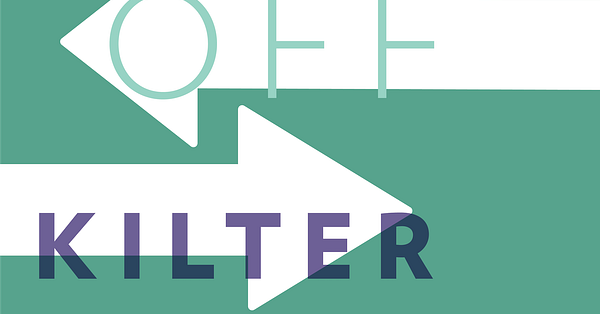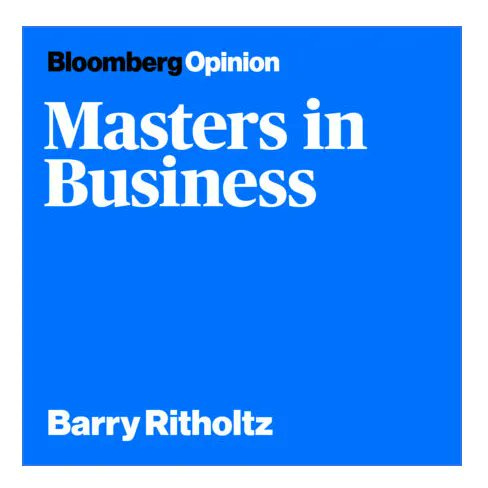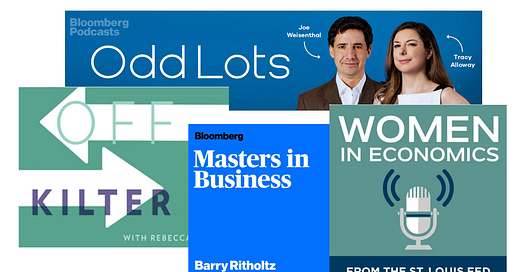Today I share some great podcast episodes on recent events, policy debates, and leaders in economics. My list is far from exhaustive, and there’s something out there for every interest. It’s a great way to stay informed and broaden your understanding.
Subscribe to receive future posts. Paid subscribers will receive additional posts on monetary policy, including one later this week on the Fed’s latest forecasts and policy decisions.
Supply chains.
Nearly three years into the pandemic, “supply chain” is now the catch-all phrase for the many disruptions that caused long delays and higher prices. But that glosses over the workers and businesses that are the “supply chains.” It also masks the longstanding problems that led to our supply chains that made them so vulnerable. We cannot protect ourselves from future disruptions unless we solve these problems.
Tracy Alloway and Joe Weisenthal, co-hosts of Odd Lots, have devoted countless episodes to talking with industry experts, business owners, and workers in the middle of it. One conversation that stands out is with Gord Magill, a longtime truck driver. He explains how longstanding practices in the industry hurt truck drivers and have made that vital part of our supply chains less resilient. The severe breakdowns due to the pandemic should be no surprise, and change is possible.

Odd Lots has discussed nearly every part of our global supply chain since the pandemic began. Tracy and Joe host conversations about timely economic and financial market developments like crypto, the South Sea Bubble, global insurance markets, Sam Bankman-Fried, and protests in China. That’s just in the past month!
Children Tax Credit.
The Child Tax Credit in 2021 was a monthly benefit for children, which had no minimum income or work requirements for families. It cut child poverty dramatically while also helping children in working-class and middle-class families. The program expired at the end of 2021 under misguided concerns that it was inflationary. See my post, “Sending money to kids did not cause high inflation.”
After the program ended, Rebecca Vallas, the host of Off-Kilter, spoke with Aisha Nyandoro, chief executive officer of Springboard, and Elisa Minoff, a senior policy analyst at the Center for the Study of Social Policy. It’s a moving episode.


Off-Kilter elevates policies with experts and advocates working directly on policy issues, including support for disabled people, the social safety net, guaranteed income, student debt, reproductive rights, and criminal justice reform.
The pandemic.
The fight against high inflation now is stuck in the 1970s and solely focused on the Federal Reserve. As I have often argued here, with a pandemic and a war in Europe, it’s the wrong lens, pushing us to the wrong policies. Monetary policymakers alone should not and cannot effectively fight this inflation alone. Fiscal policymakers and businesses have an essential role to play too.
The conversation in March 2022 between Barry Ritholtz, the host of Masters in Business, and David Kotok, chairman and chief investment officer at Cumberland Advisors, illuminates the effects of a pandemic today and in the past. One lesson from the 1918 Influenza is that pandemics destroy labor, while wars destroy capital. Sound familiar? The rest is about investments and David’s storied career.


Masters in Business offers weekly conversations with leaders in finance and economics. Barry’s wide-ranging guests are leaders in their field. They share their views on the economy, investments, and finance, as well as their career paths.
Women in economics.
In my recent post, “Inspiration Economics,” I provided several book recommendations on new policy thinking, which also happen to be led by women economists and other experts.
In March 2021, Maria Hasenstab, one of the hosts of the Women in Economics podcast from the St. Louis Fed, talks with now-Fed Governor Lisa Cook about her efforts to make economics more inclusive to new voices and ideas. They also discuss Lisa’s journey in economics.


Lisa’s journey took a historic step forward this year when she was confirmed to serve as a Federal Reserve Governor. I wrote about her many qualifications for the position, “Part 3: The new leaders for the Fed, Governor Lisa Cook.” She was recently named to Bloomberg’s top 50 for 2022.

Women in Economics podcasts interview women economists and men who support a more inclusive economics profession. The economics profession has a long way to go. Even so, it’s inspiring to learn about women in the field and recognize our progress.
Other podcasts.
Macro Musings with David Beckworth * The New Bazaar with Cardiff Garcia * Best New Ideas in Money with Charles Passer and Stephanie Kelton * Marketplace with Kai Ryssdal * Conversations with Tyler with Tyler Cowen * ECON*versations with National Association of Business Economics * The Reserve by Kaleb Nygaard * Scotonomics by William Thomson and Kairin van Sweeden * The David McWilliams Podcast by David McWilliams * The Hidden Curriculum by Alex Hollingsworth and Sebastian Tello-Trillo * The Problem with Jon Stewart Podcast with Jon Stewart * EconTalk with Russ Roberts * Policyviz Podcast with John Schwabish.
In closing.
It’s useful for everyone to understand how our economy works and the wide range of policies that could help improve it. Those in the economics profession are also responsible for creating an environment that supports new thinking and approaches. Podcasts are an excellent way to widen our perspectives.
My list of recommendations is far from exhaustive. Please add your favorite podcasts on economics and finance in the comments.





"Fiscal policymakers and businesses have an essential role to play too."
I wonder if this kind of statement is not really just meant to express concern that Fed policy is unnecessarily tight at the time, not a recommendation for business or fiscal policy makers to do anything they should not be doing anyway.
"Fiscal policymakers and businesses have an essential role to play too."
My question about this statement, which in some sense cannot be wrong, is, is it a role that would not be essential were it not for above-target inflation? Or is role fiscal policy and business should play anyway MORE beneficial with above-target inflation than with target level inflation. And to get REALLY nerdy, do the roles depend on the exact kind of inflation: supply shock, demand shock, monetary stimulus?